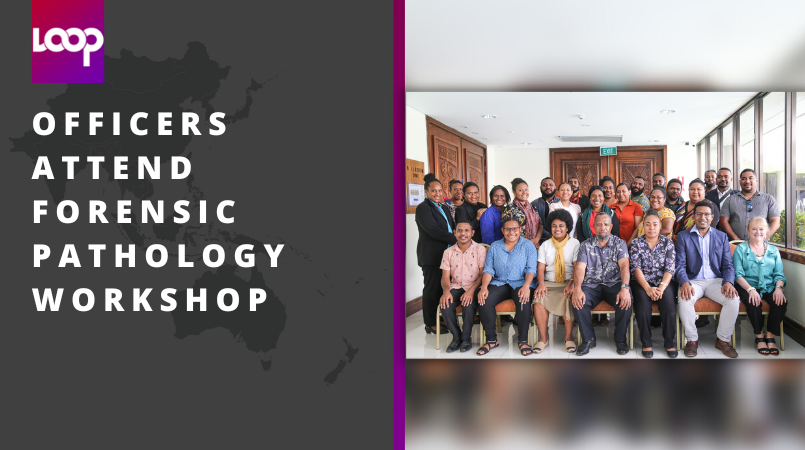
Over 30 public prosecutors, police investigators, medical staff and referral partners received training to improve their skills and knowledge in using medical evidence to prosecute alleged perpetrators of violent crimes.
This training, held in Port Moresby, was made possible through a forensic pathology workshop funded under the #PNG-Australia Partnership.
Facilitated by Dr Seth Fose, Chief Pathologist and Lawyer with the Port Moresby Forensic Medicine, the training included an introduction to forensic pathology and its role in criminal investigation, the post-mortem examination process and principles and practices of expert medical witness testimony.
It also included mock trials together with the preparation of visual aids and demonstrative pictures in court.
Prosecutors also took turns to question expert medical witnesses and police in front of a judge using real life cases.
Dr Fose also touched on the importance of maintaining accurate records and documentation throughout the forensic pathology process.
Having an in-depth knowledge in forensic pathology and its role in criminal investigation, enables public prosecutors and police officers to make better decisions and accurately determine the actual cause of death during criminal trials.
Doctors and medical experts also have an important role to play by presenting autopsy results in a criminal trial.
Dr. Stephanie Kialo-Davis, a trainee pathologist from Port Moresby General Hospital took part in the workshop. She feels more confident now to participate in court hearings to give her expert opinion when needed on different cases.
“I know my work in the lab, and am comfortable in my workspace, however, presenting my findings in a courtroom is different. This training has given me a new insight into how we as medical experts can present our reports when questioned in court and I am more confident now in doing that.
“This training is critical as it will help each participant to be more efficient in our different line of work to contribute important evidence clearly, and the suspect involved can have a fair trial and a fair decision can be made.”
The participants also shared knowledge and experiences that allowed them to learn from each other as well as to better understand processes in autopsy and to identify medical evidence relating to criminal investigations and trials.
